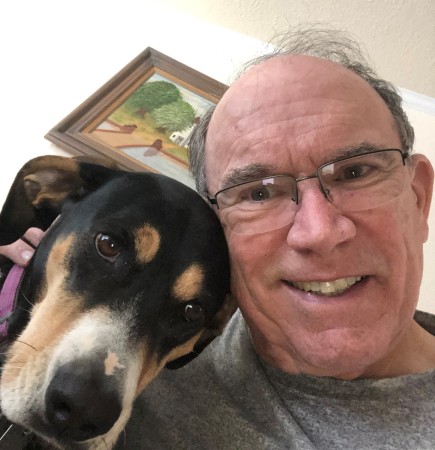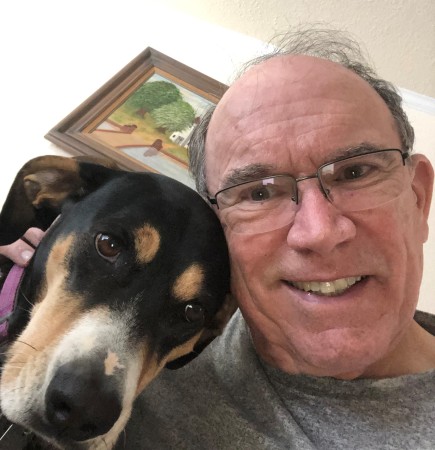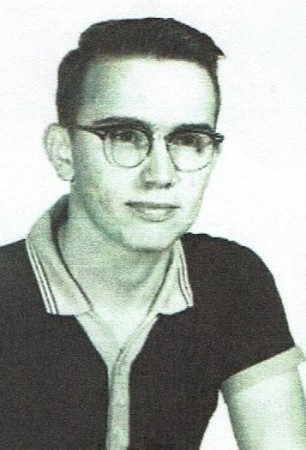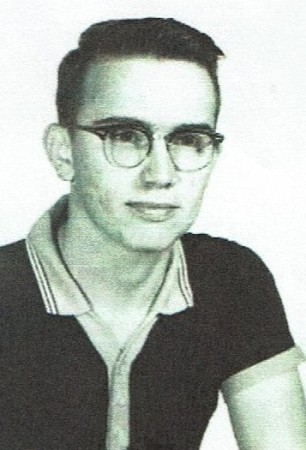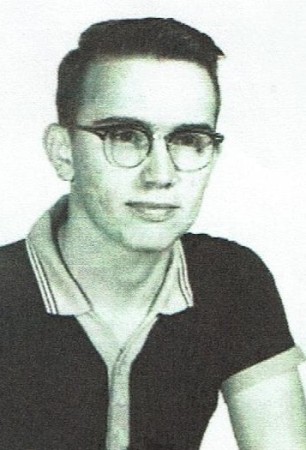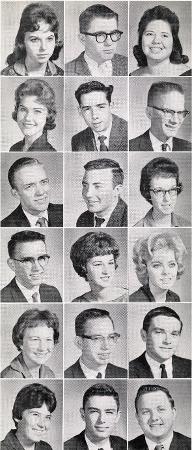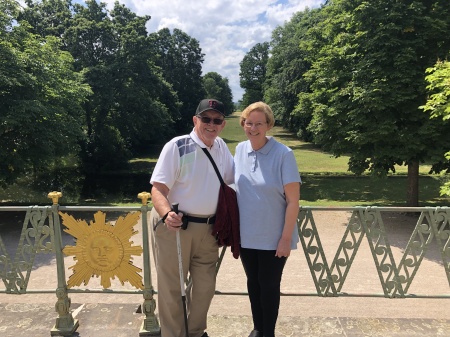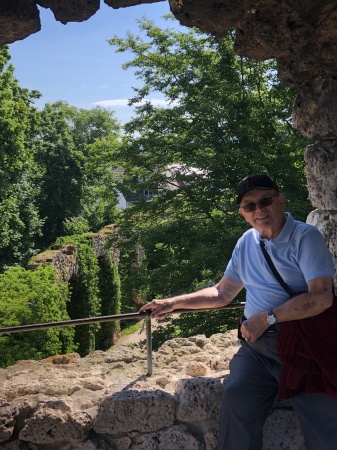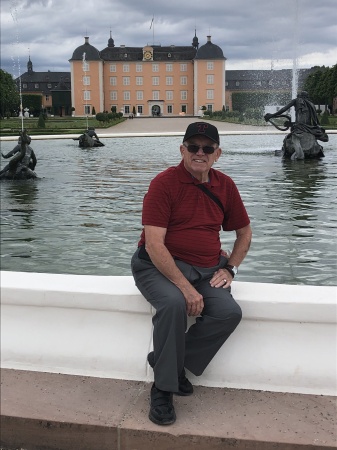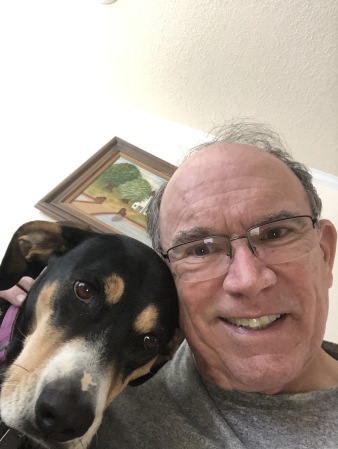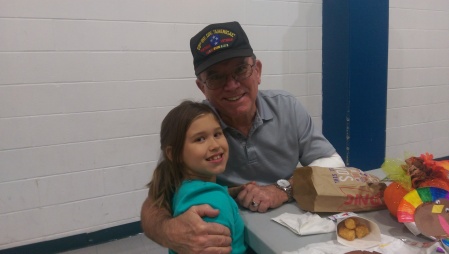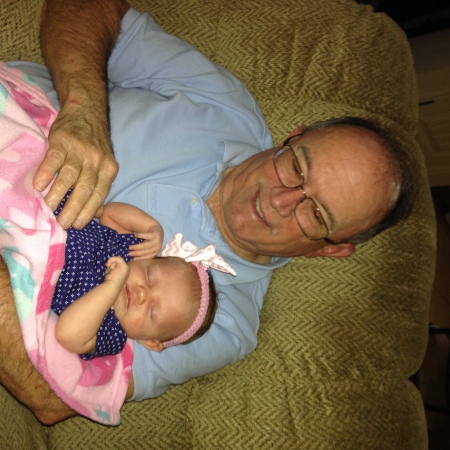Cecil Green:
CLASS OF 1962
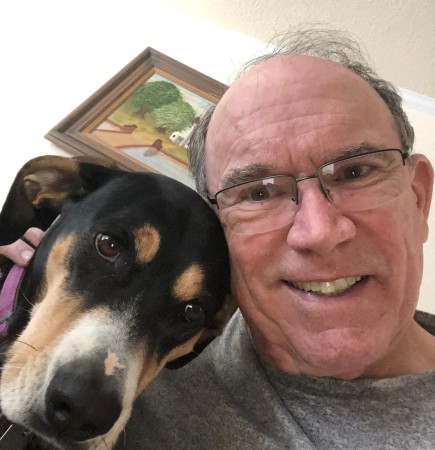
Lubbock High SchoolClass of 1962
Lubbock, TX
Smylie Wilson Middle SchoolClass of 1959
Lubbock, TX
Carol Thompson Junior High SchoolClass of 1958
Lubbock, TX
Jacksboro Elementary SchoolClass of 1956
Jacksboro, TX
Cecil's Story
I was born in Mineral Wells, TX, in 1943 while my father was stationed in Greenland during World War II. During my early years, my mother was a school teacher, and we moved to several places where she found jobs. In addition to Mineral Wells, we also lived in Granbury and Jacksboro, before moving to Lubbock in 1956. In Lubbock I went to Carroll Thompson and Smylie Wilson Junior High Schools before entering what was then Tom S. Lubbock High School in the fall of 1959, and graduating from there in May 1962.
Sometime in the 8th grade I developed an interest in Journalism and writing. I was on the staff of the Westerner World school newspaper at lubbock High School during all three years there, and was fortunate to be the editor of the student newspaper during my senior year.
Sometimes my senior year seemed like a dream -- I won a national news-writing award and received a free trip to New York City, courtesy of NBC-TV, to appear as a panel member with several other high school journalists on one of the networks youth-oriented programs. During thee year, the Westerner World also won a national award and I got a free trip to Chicago to pick up that award. After graduation from Lubbock High, i went to Texas Tech and received my bachelor's degree in Journalism there in January 1967.
I was also the editor of the Toreador, the daily student newspaper at Texas Tech during my senior year in 1965-1966. (I also returned to Tech in 1972-1973 when I was an active-duty officer in the Army -- the Army sent me there for a year to get my Master's Degree in Mass Communication.) During my final semesters at Tech and after my graduation in 1967, I worked as a reporter on two newspaper -- the Lubbock Avalanche-Journal and the San Antonio Express-News --gaining a lot of experience about newspaper operations and the work done by young reporters.
However, that on-hands experience in the real world did not last long and I entered the Army as a second lieutenant in April 1967 and began what I call my life as a professional tumbleweed. I spent 20 years on active duty as an Army officer, retiring in 1987 as a Major. At that time, I looked hard at public relations jobs or news media jobs in the civilian world, but I had enough experience to recognize lackluster professional ethics in both of those civilian markets, and I knew I would never be happy in a job that did not require and promote strong ethical standards.
Actually, I saw that problem clearly early in my Army career. During my first assignment as an officer, someone recognized that my journalism degree and my experiences with the news media made me a good candidate for the Army Public Affairs Program. After I was sent to the Department of Defense school for formal training in that specialty, It was in Vietnam that I saw the news media at work in the real world. In my schooling since the 8th grade, I was taught the standard platitudes that the news media was a responsible, self-governing profession that was based on principles of fairness, accuracy, balanced coverage, impartiality, being unbiased, honest, and responsible for living up to those ethical standards. Boy, was I ever wrong!
I am sure that every journalism student for generations past had similar textbooks like the ones I used in junior high, high school, and college -- and I knew that they must have read all those chapters that outlined the ethics of the profession. But I soon learned that textbooks and the classroom do not always teach the reality of the real world. So, in the real world of Vietnam, I was a public affairs officer in the Americal Infantry division in the northern zone of the country, and my job was to escort visiting news media representatives to field locations where American soldiers were in close contact with a harsh enemy that was intent on conquering that poor country.
However, the news media that I dealt with on a regular basis disappointed me. It was obvious that the reporters were not there to do a fair or accurate job of reporting. From my experiences and knowledge of the profession, I noticed that many reporters had their stories written before they arrived, and most of those stories were designed to feed the anti-war efforts back in the States, to embarrass the President and the federal agencies supporting the war, or to portray the American soldiers as either inept, or drug addicts, or as angry draftees who were ill-trained, ill-mannered, or as degenerates trying to find babies to kill. I was able to read the stories and view the television coverage that those so-called journalists fed to American readers and viewers back in the states, and was disgusted, not only with their politically-based stories that had no basis on fact, but also with their slanderous treatment of the American soldiers who actually acted in a professional manner against a tough enemy in a harsh environment.
At some point, I formalized my thoughts that there needed to be a strong effort to stand up for the common soldier, to provide accurate information about their accomplishments, and attempt to counter the inaccuracies found in the news media. That was a job that I wanted, because it satisfied the higher ethical standards that I believe in, and that goal was always in my thoughts.
So after Vietnam, I became a professional soldier with a mission. And as I faced retirement in 1987 and looked for another job, I realized that I wanted nothing more than continue providing accurate information about the Army and the accomplishments of our soldiers. So I started looking for a job as an Army civilian employee, and I found one, becoming an Army public affairs specialist, and serving another 19 years as a professional tumbleweed before I finally retired again in 2005 as a GS-12. -- During those 39+plus years that I spent with the Army, it seemed that I was always moving -- after all, that's the job of a tumbleweed. My travels began in 1967 and included the following stops:
- 1967 : (1) Fort Benjamin Harrison, Ind, for the Adjutant General Officer Basic Course, and (2) on to the small island of Okinawa for assignment with the 2nd Logistics Command
- 1968 : Departed Okinawa in the summer, and (1) returned to Fort Benjamin Harrison for the Information Officer Basic Course at the Department of Defense Information School. From there, (2) I spent a few weeks at Fort Riley, Kan for a Vietnam orientation course, and then (3) off to Vietnam for an assignment as a Public Affairs Officer for the Americal Infantry Division in the northern part of the country in Chu Lai. I arrived at the division on Thanksgiving Day, and my first day was working on the details for the Bob Hope Christmas tour coming in December. You might have seen a picture of me at the performance -- I was the guy at the side of the stage taking photos.
- 1969 : An infantry division in combat is a busy place, and the Americal was no different. I was usually in the field sometime every week, either escorting visiting news media, or writing stories and taking photographs for our division publications. I was involved in media coverage of a lot of events in the division, but the most notable was the so-called massacre at My Lai. That sad story happened sometime in early 1968, long before I got to Vietnam, but the story did not break until about 18 months after the incident, in the late summer of 1969.. We were swamped my members of the Saigon press corps who wanted to go to the site and I coordinated arrangements to use two large cargo helicopters to handle the load. Because it was so long after the occurrence, there was not much to see at My Lai itself, but the media had to say thkey had been there, and they kept coming until that side of the story was no longer interesting.
And Vietnam was never a safe place. With all the time that I spent in the far reaches of our division area, the closest I came to that reality occurred in the area where we had our sleeping facilities in Chu Lai. During an early morning rocket attack, I was too close to some of the explosions and was hit by some of the debris, with only some cuts and abrasions to show for it. I was one of the lucky ones
- I departed Vietnam in late November of 1969, heading back to Fort Benjamin Harrison where I was scheduled to be a student at the Adjutant General Advanced Officer Course beginning in early 1970.
- 1970: (1) The advanced course at Fort Harrison lasted for six months , and upon graduation we received our new assignments. (2) Surprise - surprise. This time I stayed at Fort Harrison to be an instructor at the Defense Information School, where I had been a student before going to Vietnam. As an instructor, I taught classes on public affairs practices and how to handle events as a public affairs specialist, working with the news media and community groups. Students at the school were officers and enlisted personnel from all of the military services, including military personnel from foreign countries
.
- 1971 - While still an instructor at the school, I was selected to attend the Public Affairs Advanced Course, conducted at the University of Wisconsin at Madison. The course was taught by professors from the Public Affairs Department at the University, and attendees received six graduate-level credit hours. Being a student on the university campus for the summer was not the usual Army experience.
- 1972: I completed my assignment at the Defense Information School in the summer of 19p72, and my next assignment was a return to university life. I applied to the Army's advanced schooling program, and I was accepted to attend Texas Tech to get a master's degree in Public Relations/Mass Communications.
- 1973 - 1975: As the summer ended in 1973, my time as a college student ended also and I prepared for a new assignment, this time with a master's degree in my pocket. My new assignment was at Fort ...Expand for more
Hood, TX, where I was scheduled to be the Public Affairs Officer at an innovative new Army organization called MASSTER, which stood for Modern Army Selected Systems Test, Evaluation and Review -- this organization was designed to move the Army out of the Vietnam era by testing and experimenting with the new weapons and techniques that would move the Army into the future. It was an exciting and challenging three years at MASSTER as I helped introduce the news media and the rest of the Army to the new ideas being focused on the future.
- 1976 -1979 : When it was time to move to a new assignment, my orders said I was going to Germany. Something else had been added too -- I had met Frances on a blind date in Copperas Cove, TX in 1975, and we were married in February 1976. She was also pregnant when we left Fort Hood in the summer of 1976, heading to Germany for our international adventure. (1) On our first assignment in Germany I was an administrative officer for the 7th Signal Brigade In Mannheim. Two important things happened while we were in Mannheim: Our first daughter Christina was born in February 1977 at the Army hospital in nearby Heidelberg, and I was promoted to Major several months later. With the promotion, I could no longer stay in my job in Mannheim, and I received word that the Commanding General of the 7th Medical Command in Heidelberg wanted to interview me for a Public Affairs job. (2) So once again, I entered into another exciting and unexpected world at 7th Medical Command. Although I had not been trained as a medical support officer, the General liked my background and I started learning the medical profession. The 7th Medical Command had responsibility for all the Army medical facilities throughout Europe and as far away as Iran. I did a lot of traveling to familiarize myself with the many different facilities and activities, and with key officials I might need to contact. As an Army outsider in a world of professional medical people, I had a good time and it has always been one of my favorite assignments.
- 1979-1983: When it came time to leave Germany, our next stop was Fort Sill, Okla, in the southwest corner of the state. Fort Sill was the Field Artillery center for the Army, with all the centralized training of Field Artillery soldiers, including basic training for soldiers just entering the Army. I had a variety of assignments on the installation, including (1) the Executive Officer of the Reception Station, where new soldiers first entered the Army; (2) the Executive Officer of the School Brigade, responsible for all the officers undergoing training, and finally (3) as the Public Affairs Officer at the Field Artillery Center, the main headquarters on the installation.
The first hint of the Public Affairs job was a telephone call interrupting my day and telling me to report to the Commanding General. As before, I was not a Field Artillery specialist, but the General needed a Public Affairs Officer and some computer kicked out my name as being available. After a sincere talk with the General, I began my job as an "outsider,' this time as a fish in the Field Artillery sea. I established my contacts, expanded my knowledge, and worked with news media and community groups to inform them about the role of the Field Artillery. On the home front, out second daughter Tamara was born at the Army hospital in the installation, becoming my first child born in America. At the end of my four years at Fort Sill, it was time to move on and we headed to Germany again.
- 1983-1986 : Assigned as the deputy Public Affairs Officer at V Corps in Frankfurt, Germany. V Corps was one of the two major headquarters in Europe which directed the activities of the combat divisions in Germany. Lot of responsibility at this level of command, and I was busy monitoring all of the public affairs activities within the in corps area, including all of the community support areas where soldiers and their families lived, and with the two combat divisions in the corps command. I was also the speech writer for three general officers. I developed a great working relationship with the corps commander, and he frequently called on me to handle special projects involving the German news media and special communications with all of the corps' subordinate units.
At one point, my boss was "fired" and reassigned, and I became the corps Public Affairs Officer for an extended time, which I was told was more than just a temporary measure. Great assignment with a lot of responsibility for a Major. While in Frankfurt, our third child -- my son Charles -- was born at the military hospital there, and we headed back to the states when he was just a few weeks old -- our destination: Fort Sill, again.
- 1986-1987: Fort Sill would be my final military assignment, since I was scheduled for retirement at the completion of 20 years of active duty. I did not know what my job was going to be at Fort Sill, until I was called into the office of the Installation Commander upon my arrival. To my surprise, one of the generals at V Corps had sent a special letter to the Fort Sill commander, recommending me for special consideration because of work under him in Germany. My resulting assignment: I was assigned as the Commander of the Fort Sill Headquarters Command, which was (1) very unusual for a Major to be in that position, and (2) it was even rarer for someone in my branch of the Army to be in a Command position -- all of the other commands at the post at my level were commanded by Colonels. Headquarters Command was responsible for about 1,500 officers and enlisted personnel assigned to the Garrison headquarters, providing for their welfare and the programs t hat supported them. This was certainly different from the preceding 19 years of my career. I was only in the job for about a year until I reached my retirement date on April 30, 1987.
In the months before my retirement, I explored the civilian job market -- but I could not see me involved with the news media, nor with big businesses, both of which seemed to function with a minimum of ethics. In short, I still felt a strong need to serve soldiers in any way possible and still be involved with the ethical standards that were part of the Army regardless of what the politicians or the news media said about the military and those of us who served our country. After many discussions with my wife, I turned my back on big business and t he news media, beginning my career as a an Army civilian employee in the Public Affairs Field. For the next 19+ years, I only had three jobs in three different locations -- which was very different from changing jobs every few years. Here are my jobs as an Army civilian employee:
- 1987-1992 : With the luxury of having a nice retirement check each month in addition to my paycheck, I got a job at Fort Chafee, Arkansas, where an exciting new command was being formed -- the Joint Readiness Training Center, where the Army's "light' combat units (those without a lot of tanks or heavy equipment) were being trained to respond to critical situations anywhere in the world on short notice. Again, this was a great assignment to work with soldiers and watch the Army prepare for a different world.
- 1992-1997 -- After 5 years at Fort Chaffee (and after my wife finally had time to finish her nursing degree), it was time to move on and I applied for a public affairs opening at Red River Army Depot, near Texarkana, Texas. The new job involved a raise in grade to GS-11 and the title of Public Affairs Officer -- what was not mentioned was there were only two people on the office staff -- me and my secretary.
However, an Army Depot is an interesting organization, and the challenges of the job suited me fine. This was an Army installation unlike any other I had ever seen -- there were only about seven military personnel on the staff, along with more than 3,000 civilian employees, most of whom were heavy vehicle mechanics and other specialists in trades necessary to refurbish and completely rebuild armored vehicles, trucks, and other large military vehicles, primarily those that had been damaged or almost destroyed during the military operations in Iraq..
I enjoyed the work of telling the local news media and area community groups about the unusual work being done at Red River and how it benefitted the Army and taxpayers. In this job, I worked with local and regional media in Texas, Oklahoma, Arkansas, and Louisiana, and even made contacts at national media outlets and interested them in what was happening in our corner of Texas. Additionally, after my secretary became ill and could no longer work, I was a one-person journalism staff responsible for writing articles, editing, and creating the monthly depot newspaper.
After five years at the depot, I figured it was time for another job -- and another door opened for me.
- 1997-2005: The final job in my Army career -- 20 as an Active Duty officer, and 19+ years as an Army civilian specialist -- took me right where I wanted to be, right back to Fort Hood and Central Texas, exactly where my wife and I wanted to live after my retirement.
This time I was Chief of the Public Information Branch within the III Corps and Fort Hood Public Affairs Office. My job involved working with local, regional, national, and international news media; helping them develop stories about Fort Hood and its missions. and working closely with senior officers and personnel throughout the command to provide answers to the questions being asked by the news media.
It was challenging work, and my assignments with so many different organizations throughout the Army served me well.
Now, since 2005, Frances and I have been enjoying retired life on our 5 acres of rocky Texas hills ... it was time for this tumbleweed to settle down and take root after a rewarding career.
Register for Free to view all details!
Yearbooks
Register for Free to view all yearbooks!
Reunions
Register for Free to view all events!
Photos

